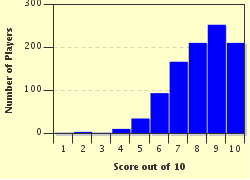Quiz Answer Key and Fun Facts
1. An elderly gentleman notices that he has been experiencing leg pain whenever he walks about two blocks. In addition, his legs have been looking somewhat discolored lately. He sees his Primary Care physician who explains that he has PAD.
What does the acronym PAD represent?
2. Ms X has been diagnosed with UTI. She claims she has been taking frequent trips to the bathroom recently and has been experiencing a burning sensation each time she passes urine.
What does this diagnosis of UTI represent?
3. A 21 year old African-American female is brought to the emergency room with the chief complaint of chest and joint pain. On examination she is frail and jaundiced looking. The attending physician claims she has SCD and needs an exchange transfusion.
What does the acronym SCD mean in the context used here?
4. Mr. Arthur suffers from arthritis. Over the years, he has been taking ibuprofen (Motrin) and aspirin for pain relief. He presents to the emergency room with chief complaint of vomiting stomach contents which looks like coffee grounds. He's diagnosed with PUD.
What does PUD stand for?
5. Three days ago, Mr Vandrunkenburg, a known alcoholic, was picked up in the streets by paramedics. He reportedly walked into a moving vehicle and sustained multiple fractures. His blood alcohol level was above 400 (which is very high). Today Mr. Vandrunkenburg is shaking uncontrollably and acting bizarre. The Doctor diagnosed DTs.
What is DTs in this context?
6. For the last month, Mr X has been coughing up small amounts of blood. He claims to have lost over 20 pounds unintentionally and experiences night sweats and chills. A chest x-ray reveals suspicious signs of TB.
What does TB stand for in medicine?
7. A truck driver is brought to the Emergency Room in severe respiratory distress. He is hypotensive and tachycardic. About a week ago, he had been experiencing swelling, stiffness and pain to his left leg. These symptoms were relieved with a combination of massages and stretch exercises. A CT scan of the chest with intravenous contrast reveals PE.
What is PE in the context of this patient's history?
8. Fifteen years ago, Kim was diagnosed with chronic kidney disease. Her kidneys have gotten so bad now that her nephrologist thinks she needs dialysis. He claims she now has ESRD.
What is ESRD?
9. Ms Clean is the secretary of a busy unit. Lately her workmates have been complaining that Ms Clean seems to be more concerned with cleaning her environment than actually doing her secretarial duties. She cleans her desk thrice every morning using three specific cleaning agents. She swears her colleagues are untidy and are trying to kill her with germs. A close friend discloses that Ms Clean suffers from OCD.
What does OCD mean?
10. Due to the prevailing economic instability at a particular firm, a senior executive was forced to cut spending in his department by 50% and improve output by 25%. While having a meeting with his disgruntled, argumentative subordinates he clutches his chest complaining of severe chest pain. "I can't breathe" he said, "It feels as though an elephant is sitting on my chest." Mr. Executive was rushed to a nearby hospital where he was diagnosed with MI.
What does MI represent in this situation?
Source: Author
yency
This quiz was reviewed by FunTrivia editor
crisw before going online.
Any errors found in FunTrivia content are routinely corrected through our feedback system.


